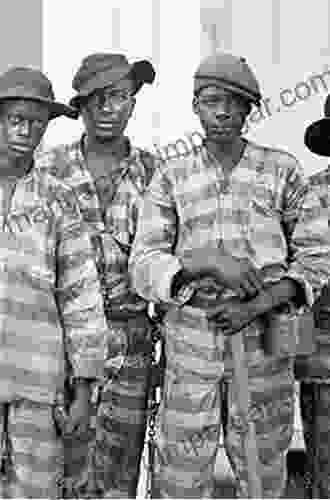Philosophy Of Mathematics In The Twentieth Century: Unraveling the Enigma

The 20th century witnessed a remarkable surge of philosophical inquiries into the very nature of mathematics. This intellectual endeavor, known as the philosophy of mathematics, sought to illuminate the foundations, methods, and implications of mathematical knowledge.
5 out of 5
| Language | : | English |
| File size | : | 1305 KB |
| Text-to-Speech | : | Enabled |
| Screen Reader | : | Supported |
| Enhanced typesetting | : | Enabled |
| Word Wise | : | Enabled |
| Print length | : | 365 pages |
Logical Positivism and the Verification Principle

Logical positivism, a dominant philosophical movement of the early 20th century, exerted a significant influence on the philosophy of mathematics. Logical positivists, such as Moritz Schlick and Rudolf Carnap, argued that meaningful statements must be verifiable through empirical observation or logical reasoning.
In the context of mathematics, this meant that mathematical statements, such as "2 + 2 = 4," were considered true solely based on their logical consistency within the axiomatic system of mathematics. Metaphysical claims about the objective existence of mathematical objects, on the other hand, were deemed meaningless because they could not be empirically tested.
Constructivism and the Rejection of Platonism

Constructivism emerged as an alternative perspective to logical positivism's verification principle. Constructivists, like L.E.J. Brouwer and Errett Bishop, argued that mathematics is not a static collection of truths but rather a dynamic process of human construction.
They rejected the Platonic notion of mathematical entities existing in an independent, abstract realm. Instead, they maintained that mathematical concepts and objects are products of human imagination and are subject to ongoing revision and refinement.
Intuitionism and the Role of Intuition

Intuitionism, a philosophical movement closely aligned with constructivism, further challenged the emphasis on formal logic in mathematics. Intuitionists, such as Henri Poincaré and Arend Heyting, contended that intuition plays a fundamental role in mathematical reasoning.
They argued that certain mathematical principles, such as the law of excluded middle, which states that every proposition is either true or false, cannot be proven through purely logical means and must be accepted intuitively.
Formalism and the Search for an Axiomatic Foundation

Formalism, in contrast to constructivism and intuitionism, sought to establish a secure foundation for mathematics through axiomatization. Formalists, led by David Hilbert and Kurt Gödel, aimed to develop a complete and consistent set of axioms that would serve as the irrefutable basis for all mathematical knowledge.
They envisioned mathematics as a purely formal system, akin to a game played according to predefined rules, divorced from any real-world applications or intuitive meanings.
Gödel's Incompleteness Theorems: A Foundational Crisis

Gödel's groundbreaking incompleteness theorems dealt a decisive blow to the formalist program. These theorems demonstrated that any consistent axiomatic system capable of expressing basic arithmetic is either incomplete, meaning that there are true statements that cannot be proven within the system, or inconsistent, meaning that it contains contradictory statements.
This shattered the formalist aspiration of constructing a comprehensive and self-contained foundation for mathematics, forever leaving open the possibility of undecidable statements and the potential for foundational uncertainty.
Late 20th Century Developments: Pluralism and Pragmatism

The late 20th century witnessed a shift towards pluralism and pragmatism in the philosophy of mathematics. Philosophers began to acknowledge the diversity of mathematical practices and the importance of practical considerations in shaping mathematical knowledge.
They moved away from the grand foundational debates of earlier decades and instead focused on exploring the various ways in which mathematics is used and understood in different contexts, from scientific modeling to computer science to everyday life.
: Unveiling the Multifaceted Nature of Mathematics
The philosophy of mathematics in the 20th century was a vibrant and multifaceted endeavor that challenged traditional assumptions about the nature of mathematical knowledge. It gave rise to diverse and often conflicting schools of thought, each offering unique insights into the intricate relationship between mathematics, logic, and human experience.
Through this philosophical journey, we have unveiled the enigmatic nature of mathematics, recognizing it as a dynamic and evolving human endeavor that transcends narrow definitions and embraces the diversity of human thought and practice.
5 out of 5
| Language | : | English |
| File size | : | 1305 KB |
| Text-to-Speech | : | Enabled |
| Screen Reader | : | Supported |
| Enhanced typesetting | : | Enabled |
| Word Wise | : | Enabled |
| Print length | : | 365 pages |
Do you want to contribute by writing guest posts on this blog?
Please contact us and send us a resume of previous articles that you have written.
 Book
Book Novel
Novel Page
Page Chapter
Chapter Text
Text Story
Story Genre
Genre Reader
Reader Library
Library Paperback
Paperback E-book
E-book Magazine
Magazine Newspaper
Newspaper Paragraph
Paragraph Sentence
Sentence Bookmark
Bookmark Shelf
Shelf Glossary
Glossary Bibliography
Bibliography Foreword
Foreword Preface
Preface Synopsis
Synopsis Annotation
Annotation Footnote
Footnote Manuscript
Manuscript Scroll
Scroll Codex
Codex Tome
Tome Bestseller
Bestseller Classics
Classics Library card
Library card Narrative
Narrative Biography
Biography Autobiography
Autobiography Memoir
Memoir Reference
Reference Encyclopedia
Encyclopedia Rita Mae Brown
Rita Mae Brown Chris Darbonne
Chris Darbonne Jim Webster
Jim Webster Charles Oman
Charles Oman Chris Bucher
Chris Bucher Christopher B Maselli
Christopher B Maselli Michael L Eads
Michael L Eads Christopher Hitchens
Christopher Hitchens Little Piggy Co
Little Piggy Co Chrisie Rosenthal Ibclc
Chrisie Rosenthal Ibclc Cheri Farnsworth
Cheri Farnsworth John Minnis
John Minnis Edward O Connell
Edward O Connell Charles Richfield
Charles Richfield Jeanette Elisabeth Menter
Jeanette Elisabeth Menter Chris Scott Graham
Chris Scott Graham Sakina Ibrahim
Sakina Ibrahim Charles T Horngren
Charles T Horngren Charles Sanford
Charles Sanford Charles Lachman
Charles Lachman
Light bulbAdvertise smarter! Our strategic ad space ensures maximum exposure. Reserve your spot today!

 Walt WhitmanBuild Perfect Alternate Picking Speed, Accuracy, and Guitar Technique In 90...
Walt WhitmanBuild Perfect Alternate Picking Speed, Accuracy, and Guitar Technique In 90... Chandler WardFollow ·8.1k
Chandler WardFollow ·8.1k Mario SimmonsFollow ·15.6k
Mario SimmonsFollow ·15.6k Jerry WardFollow ·19.2k
Jerry WardFollow ·19.2k Ross NelsonFollow ·2.6k
Ross NelsonFollow ·2.6k Oscar BellFollow ·6.7k
Oscar BellFollow ·6.7k Ira CoxFollow ·18.2k
Ira CoxFollow ·18.2k Jamison CoxFollow ·5.9k
Jamison CoxFollow ·5.9k Gerald BellFollow ·19.4k
Gerald BellFollow ·19.4k

 E.E. Cummings
E.E. CummingsOne Man's Story of What It Meant to be Pj
In the tapestry of life,...

 Caleb Long
Caleb LongPattern Theory in Video Keno: Unveiling the Art of...
Embark on an enlightening journey into the...

 Douglas Adams
Douglas AdamsUnveiling the Diplomatic Landscape: The Ottoman Empire,...
Delving into the History...

 Terry Bell
Terry BellThere Still Is No Off Season: Embracing Year-Round...
In a world consumed by routine and the allure...

 Ibrahim Blair
Ibrahim BlairBrain Teasers Games and Puzzles: Exercise Your Mind with...
Prepare to embark on a captivating journey...
5 out of 5
| Language | : | English |
| File size | : | 1305 KB |
| Text-to-Speech | : | Enabled |
| Screen Reader | : | Supported |
| Enhanced typesetting | : | Enabled |
| Word Wise | : | Enabled |
| Print length | : | 365 pages |












